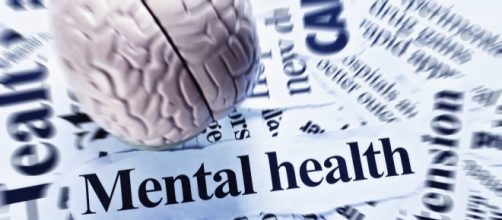Shiroh Adia is one of many who has fallen victim to the decreasing realization from mental health professionals and practitioners who feel that the over-usage of drugs is an acceptable way to cure something that is more than just 'a mental illness.' It is not in fact 'just a mental illness,' and Shiroh has come to realize a vital flaw within the system that many diagnosed rely heavily on.
Prescribed drugs for psychosis and it's effects
Neuroleptics are usually prescribed to reduce dopamine levels and is medically described as an 'intervention' within medical settings.
The negative side-effects: shaking, restlessness, drowsiness, dizziness, blurred vision, muscle spasms, dry mouth, and constipation are some of the effects that can trigger within the body's system.
Shiroh didn't mention the prescribed drugs that were given to her but labeled some of the more popular used: quetiapine, risperidone, olanzapine, aripiprazole, and clozapine.
The harmful effects of antipsychotic drugs
Shrioh mentioned that she had been "given antipsychotic prescriptions prescribed by a psychiatrist in the NHS." Despite pressure from family and the people around her Shiroh stopped taking the prescribed medication which she says was "Incredibly harmful and dangerous." It created different health problems that she is still suffering from, she said that "Clinicians that prescribe a treatment are supposed to have an understanding of the treatment that they are prescribing to people.
A lot of clinicians and psychiatrists don't understand much about the treatments that they are giving to people and seem to have very little interest in the harmful aspects of the treatment and the negative impact which prescribed treatment can and often does have on the quality of a patient's life.
The free health service
Shiroh told me that she was recommended by a clinician to attend a mental health service in her area for people who had experienced mental health problems, and would benefit from its services. The idea was that it was a kind of service which would provide support for people in finding a job; support in pursuing hobbies; support in socializing and meeting other people, and support in reducing social isolation.
It's a free service, and it's promoted by psychiatric teams in the area - so people's clinicians tell them to go to this place."
What she found was there was very little activity being done in concordance with what was meant to be offered. She found other participants coming in and out of the service showing signs of worrying over - medication, and nothing being done by the team in place there to help those who had been severely drugged by the medication.
Coming off of the treatment
Shiroh mentioned that "The first thing people notice when coming off of the drugs is change's in a person's weight because antipsychotic drugs make the person put on weight. She said that weight gain isn't the only thing that antipsychotics do, but it is the easiest thing to talk about.
She said, "the more debilitating/mental effects are more difficult to discuss."
"People have actually taken their health into their own hands in a sense that they began to look after their health and learn about their health. Shiroh has mentioned that she has learned alternatives to psychiatry through various survivors and mental health advocates, and through connecting with an online community - she was able to learn about the alternatives which she says was "fascinating!" She commented that "I wouldn't advise people to stop taking psychiatric medicine suddenly if they have been taking it for a while, but rather to taper off of it by reducing the dosage with the help of their psychiatrist. This can be done with time, care, and self-love/evaluation of yourself."

